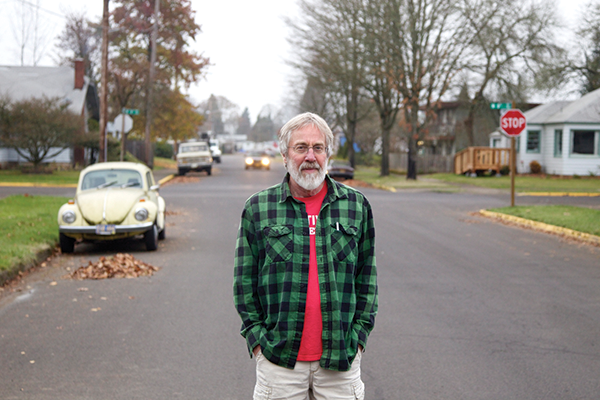At the end of April 1995, with just under a year left in the Unabomber’s nearly two-decades-long campaign of antitechnology violence, the New York Times published excerpts from a letter by the still-unknown, unnamed Ted Kaczynski in which he promised to “permanently desist from terrorist activities” if the Times or another nationally read publication printed his manifesto. The letter, like all of Kaczynski’s writing, was almost biblical in its moral pronouncements: technology is evil. The people who make technology are evil. Evil people deserve to die. People took from this only that the Unabomber was some kind of technophobe or Luddite or something—someone who hated modernity—and to get a more nuanced opinion, the Times sent a reporter to Eugene, Oregon, to interview a guy named John Zerzan.
Even then, Zerzan was probably the highest-profile anarchist in America. He was a fifty-two-year-old who earned his living as a babysitter. He lived in a housing co-op and didn’t own a credit card (even after computers became mainstream, Zerzan did most of his writing by hand). In appearance and temperament, he looked and sounded like Tommy Chong: a bearded baritone you could picture singing “Up in Smoke” while driving around with a doobie the size of a hot dog. If it weren’t for his two published collections of essays, Elements of Refusal and Future Primitive, Zerzan would have passed as another baby boomer with an aversion to adulthood. But in his writing, Zerzan espoused what is arguably the most extreme political philosophy on the planet: that the problem behind all the other problems—war, famine, disease, the environment—is civilization itself, and that the solution is to blow it up and start again.
It’s doubtful that the Unabomber ever read Zerzan, but they’d both been influenced by some of the same people: Plato, Heidegger, the Frankfurt School philosophers Horkheimer and Adorno. They had similar stories, too. Both were disgruntled academics of Eastern European origin who struggled to find their place in a country that had grown up too fast. Kaczynski killed people, and while Zerzan acknowledges that his vision would reduce the human population “fairly quickly,” he doesn’t actually advocate violence. In fact, Zerzan has been a lifelong pacifist. When the Times reporter asked him about all the attention that anti-industrial, antitechnology ideas were getting, he said it was “kind of unfortunate that it depends on spectacular violence by somebody, or whoever it is, to get it into print. That’s not the best way to do it. But I really feel that we’re getting to the point—and perhaps this is wishful thinking—that these ideas are about to burst on the scene.”
When Kaczynski...
You have reached your article limit
Sign up for a digital subscription and continue reading all new issues, plus our entire archives, for just $1.50/month.
Already a subscriber? Sign in





